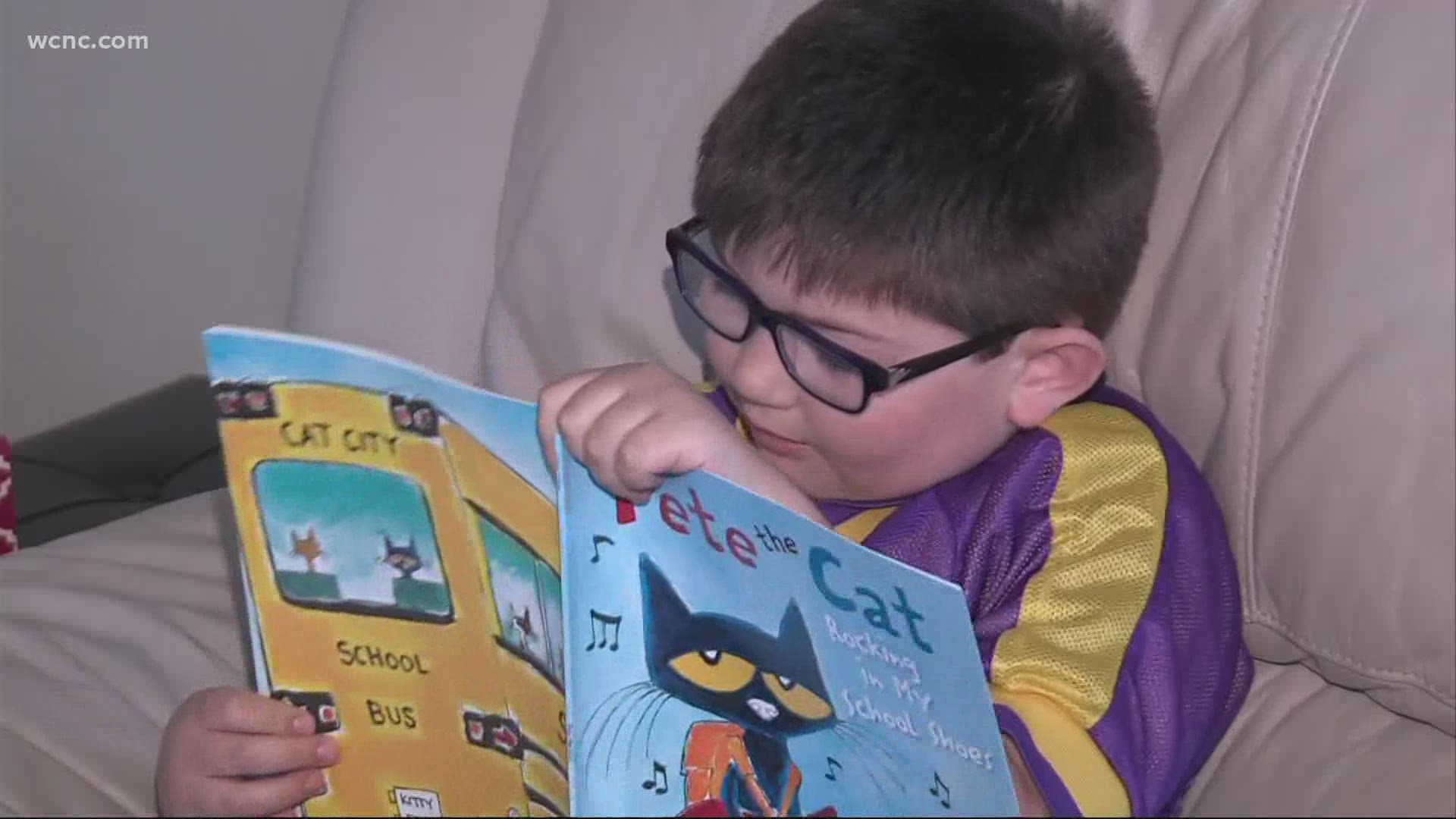CHARLOTTE, N.C. — Coronavirus is prevailing as a dual threat to children, not only threatening their health, but their education.
In addition to taking away half of their school year, COVID-19 is now threatening to affect summer programs, specifically those intended to help get students in grades K-3 who are reading at grade level.
Some experts fear children who were already behind before the crisis began, have only fallen further behind.
“This impact is not just about what’s happening to children today in early elementary school and their ability to be able to read well or not, but we’re talking about an impact that we will feel for years,” said Munro Richardson, Executive Director of Read Charlotte, a community initiative created in 2015 to help get third graders reading at grade level.
Data from the NC Department of Public Instruction shows over the last several years only a little more than half, or 56.8% of all of North Carolina’s third graders were considered "grade level proficient."
“Reading proficiency by the end of third grade is one of the best predictors of how well children will do in school,” said Richardson. “A child that is not reading proficiently by the end of third grade is four times more likely to drop out of high school.”
RELATED: CMS makes recommendation for Class of 2020 seniors, in-person celebrations planned for fall
He believes the issue however is being made worse by the coronavirus. For example, Richardson says there are about 60 out of roughly 110 CMS schools where only about one-third of third graders are reaching college and career ready.
“We already had a gap, sort of like two Charlottes and the big worry is that the COVID-19 health crisis has exacerbated the divide between the types of experiences children were receiving in our community,” he says.
Richardson, whose organization works closely with the Charlotte-Mecklenburg School district, says he commends the district for getting their remote learning program up and running so quickly. He says the challenge, however, is that every child needs something different.
“One of the things we lost in particular was the ability to precisely focus on the unique needs of each child,” he said.
On Friday, CMS announced school buildings will remain closed for the summer and will not open for traditional, face-to-face programming offered in the past.
“We do not believe we can meet the social-distancing, screening and sanitation requirements that would make these programs safe for children and adults,” the release said.
Richardson says his organization plans to step up, however, to reach students in need of catching up. He says Read Charlotte is currently conducting focus groups with roughly 30 families to come up with best way to support families later this summer. He says the organization expects to announce their plans in about a month, saying they’re looking at all options, including using churches to provide in-person academic sessions.
“We could have the equivalent of up to three summers of academic loss in one summer if we’re not proactive and really intentional on meeting the needs of children,” he says.
Some education officials however, question how much is achieved during summer programs and say the risk needs to be weighed. A 2018 study by North Carolina State University found the North Carolina’s Read to Achieve program has had little gains for third-graders, with five years of test scores showing only slight improvements.
Under Read to Achieve, third-grade students are required to earn a grade-level reading score before moving on to fourth grade, however, the COVID-19 bill signed by Governor Cooper not only waives end of year exams, but cancels this year's summer reading camps.
For any parent who feels their child is falling behind, Richardson says the best thing they can do is to read with their child.
“Active reading with children, not just reading to them but reading with them, stopping, talking about the stories is one of the best ways to build their vocabulary, build their language skills, build their oral comprehension,” he says. “Any parent today can immediately start to do that and make a big difference for their children.”
CMS says they be continuing to offer remote supplemental learning opportunities for all students beyond the close of the school year and will allow continued use of Chromebooks and mobile hotspots throughout the summer for all students in grades K-11, but have not yet said announced what those supplemental opportunities will be.

